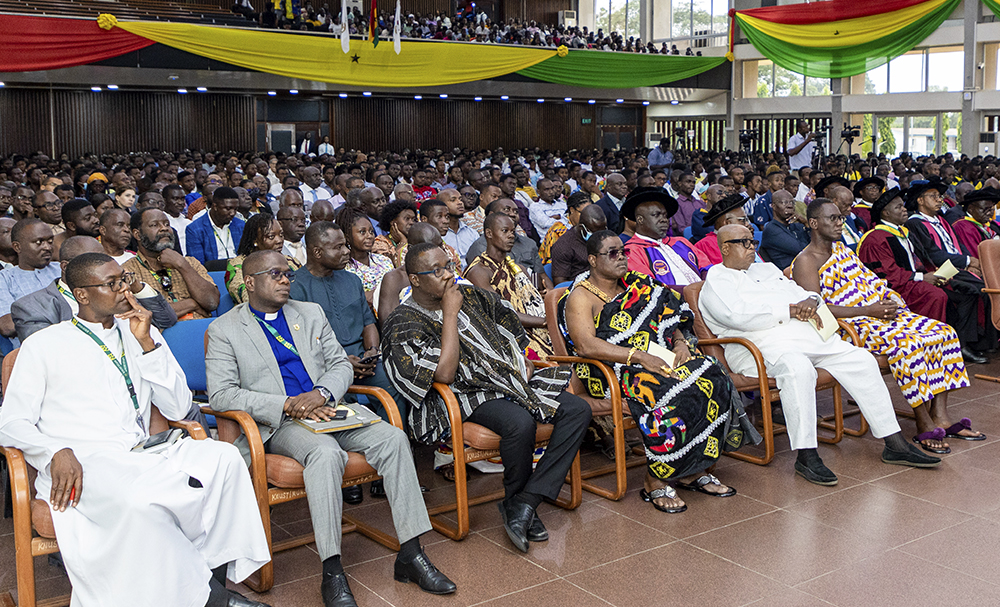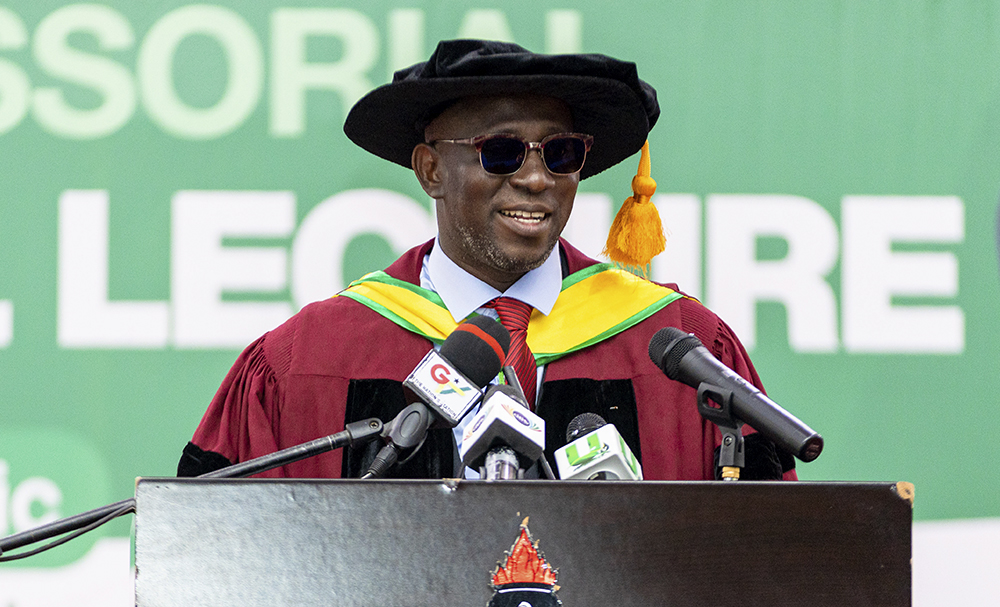A Professor in the Department of Planning, Kwame Nkrumah University of Science and Technology (KNUST), Kumasi has proposed the development of a National Transport Poverty Index (NTPI), among others, in addressing transport poverty in Ghana. Professor Michael Poku-Boansi made the proposal in his Professorial Inaugural Lecture on the topic: “Transport Poverty in Africa: Planning for Our Mobility Futures in an Era of Sustainability.” Professor Poku-Boansi revealed that the NTPI, which will be led by the Ministries of Transport and Local Government, Decentralisation and Rural Development and Academia will help address transport poverty and help to rank the Metropolitan, Municipal, and District Assemblies (MMDAs). He noted that variables such as transport access, transport mobility, transport affordability, exposure to transport externalities, and inclusiveness could serve as the basis for developing the index. The development of the NTPI will be the first of its kind, globally, and will serve as a useful tool in shaping transport investment decisions. According to him, Ghana’s quest to achieve the Sustainable Development Goals (SDGs) will become a mirage if particular attention is not given to transport poverty. The Deputy Director of the SGS said transport poverty has not received a universal definition or a single measure but is generally conceptualized as the inability of individuals to make journeys needed such as to work and school. Relatedly, transport poverty is argued to connote mobility and accessibility, poverty, social exclusion, or transport disadvantage. It is estimated that more than half a million of the world’s population live in cities, which are highly dynamic and complex entities, going through some transformation. In developing countries, cities have witnessed accelerated urbanization driven by changing demographics, rural-urban migration, economic growth strategies, and capital flows. Even though these transformations have resulted in some opportunities, cities in the global south do face several adverse consequences. For instance, city dwellers often lack essential rights to the city as they have limited access to basic services.
The Professor of Planning submitted that travel provides a way to access vital resources including employment, education, shopping, and promoting social networks, all of which have an impact on one’s quality of life. However, social inequality and exclusion are intrinsically related to limited mobility. He further called for the implementation of an integrated land use and transport planning regime that has improving accessibility levels as the overriding priority. He argues that addressing the prevailing accessibility challenges and averting the possibility of them worsening should begin with addressing the problem of uncontrolled urban expansion. The distribution of land uses determines the location of activities. Hence, the spatial separation among the various land uses creates the need for the interactions that manifest in travel by different mobility options. He called for the redevelopment of informal slum settlements into sustainable communities where access to basic socio-economic facilities abound, thus reducing the need to travel. He also advocated the preparation of local transport plans for the development of a sustainable and inclusive transportation system that seeks to ensure travel time savings, reductions in travel costs, accessibility improvement, and reduced negative impact of transport on the environment.
Professor Poku-Boansi also encouraged local authorities to partner with the private sector in providing improved bus services within their jurisdiction. Since people with low incomes tend to use commercial buses more than others, there is a case for improving local bus services which will result in reducing transport poverty. Government should also offer concessionary fares for older, disabled, and poor people to further reduce the barriers to travel as that can help address poverty.
In addition, the government should seriously work to implement public transport service schemes such as the Bus Rapid Transit (BRT) as one of the best ways to stabilize transport costs and particularly minimise the financial stress on lower-income people. Professor Poku-Boansi said a community-based transport scheme that uses commercial minibuses, with volunteer drivers which provide a service to meet community needs, funded from fares paid and by local authorities is laudable and should be explored. In conclusion, he called on the Ministry of Transport and academia to consider electric and autonomous vehicles and to see mobility as a service as these emerging initiatives will position the country for the future. He has collaborated with several researchers in Ghana, Africa, and beyond to undertake transdisciplinary research work. He has to his credit over 100 publications including papers in peer-reviewed journals, books, book chapters, conferences proceedings policy briefs, and over 40 consultancy reports. He is an excellent researcher with a very good H-index of 19 and over 915 citations on the google scholar platform and 15 on ResearchGate. He is a product of Pope John Secondary School and Junior Seminary, Kwame Nkrumah University of Science and Technology (KNUST), the University of Leeds, United Kingdom, and the Open Learning Campus of the World Bank. He was appointed lecturer at the Department of Planning, Faculty of Built Environment, KNUST in 2009. He has over ten years of teaching experience, research, and community service.
The Vice-Chancellor, Professor Rita Akosua Dickson, praised the lecturer for his outstanding academic career and contributions to various fields such as transportation, urban resilience, land use/urban planning, housing, and resettlement. Professor Dickson also commended his commitment to conducting research for the betterment of society. Mr. Andrews Kwasi Boateng, Registrar of KNUST observed that inaugural lectures hold great significance in prestigious universities, signifying a significant milestone in an academic's career. It serves as an official recognition of their promotion to the rank of full professor. Inaugural lectures provide a unique opportunity for newly appointed professors to introduce themselves and present an overview of their research accomplishments to the academic community.

The Lecture was highly patronised by the University Community, stakeholders in the planning, housing, and transportation sector, the clergy, traditional leaders, alumni, Members of Pope John’s Old Boys Association, selected senior high schools, the media, the general public, friends, and family of Professor Poku-Boansi.


















